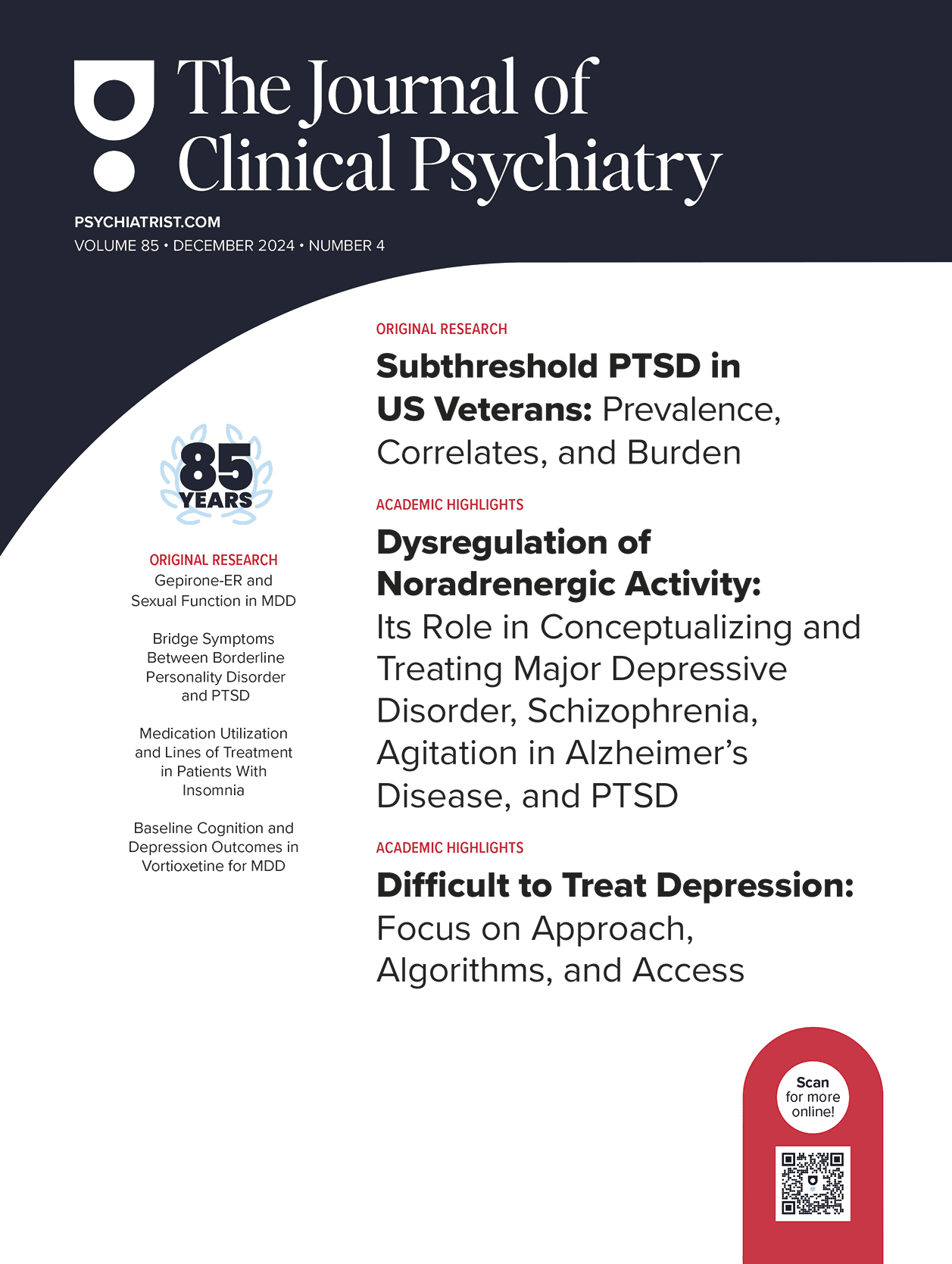Melatonin in Medically Ill Patients With Insomnia: A Double-Blind, Placebo-Controlled Study (original) (raw)
Original Research January 1, 2001
J Clin Psychiatry 2001;62(1):41-45
Article Abstract
Background: It has been suggested that melatoninimproves sleep functioning, but this possibility has not beenstudied in medical populations.
Method: 33 medically ill persons with initialinsomnia were randomly assigned to receive either melatonin (N =18) or placebo (N = 15) in a flexible-dose regimen. Double-blindassessments of aspects of sleep functioning were obtained dailyacross the next 8 to 16 days.
Results: The mean stable dose of melatonin wasfound to be 5.4 mg. Relative to placebo, melatonin significantlyhastened sleep onset, improved quality and depth of sleep, andincreased sleep duration without producing drowsiness,early-morning “hangover” symptoms, or daytime adverseeffects (p < .05). Melatonin also contributed to freshness inthe morning and during the day and improved overall daytimefunctioning. Benefits were most apparent during the first week oftreatment.
Conclusion: Melatonin may be a useful hypnoticfor medically ill patients with initial insomnia, particularlythose for whom conventional hypnotic drug therapy may beproblematic.
Save
Cite
INFORMATION FROM INDUSTRY

Vol 85 • 2024 • Number 4